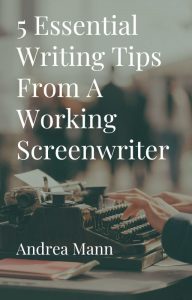This is the speech I gave at Westminster City Council’s full council meeting tonight, in a debate about Public Health. I highly recommend reading all of Kurt Vonnegut’s letter to the high school students. 🙂
When a group of high school students contacted him as part of an English assignment, the writer Kurt Vonnegut gave them the following advice:
“Practice any art, music, singing, dancing, acting, drawing, painting, sculpting, poetry, fiction, essays, reportage, no matter how well or badly, not to get money and fame, but to experience becoming, to find out what’s inside you, to make your soul grow.”
Whether we’re participating in them as creators, audience members, or something in between – the arts make our souls grow. They make us feel ourselves; feel connected; feel better – sometimes in more ways than one. Because there’s an overwhelming body of evidence to show that taking part in creative and cultural activities can dramatically improve our health and wellbeing.
This connection between health and creativity was backed up as recently as 2017, in the report produced by the All-Party Parliamentary Group on Arts, Health and Wellbeing.
Their two-year inquiry found that arts engagement improves psychological, social and emotional wellbeing in people of all ages.
It can reduce stress, anxiety and depression, social isolation and loneliness; it can promote healthy ageing; help with the self-management of long-term health conditions; tackle health inequalities and begin to address obesity.
The report also found that engagement in the arts influences childhood development, and shapes educational and employment opportunities. It prevents illness and infirmity from developing in the first place and worsening in the longer term.
And it doesn’t just help us as individuals: it improves the wellbeing of groups, whole communities and our wider society – strengthening bonds between us, and promoting community cohesion.
And for those who care about the bottom line: the report also found that arts engagement saves money in social care and the health service.
Now, we’re spoilt for choice when it comes to arts offerings here in Westminster – but I don’t need to tell you that this rich cultural scene is not enjoyed equally by everyone.
The government’s ‘Taking Part’ survey has shown that people who visit museums and galleries are disproportionately prosperous, well-educated professionals over the age of 55. When it comes to participating in creative activities, the picture is the same in terms of education and occupation.
And in both attendance and participation, ethnicity is a factor – with museum and gallery visitors less likely to be black or Asian, and arts participants most likely to be white.
Arts attendees and participants also enjoy good health – whereas disadvantaged and marginalised groups are disproportionately affected by ill health.
Faced with the overwhelming evidence showing the positive effects of arts and culture on our health and wellbeing, I urge Westminster Council to integrate the arts into its health plans; to think of our arts institutions and venues as part of the public health landscape; and to see spending on arts and culture as an investment in the health and wellbeing of our residents.
I’m delighted to be part of the Access to Culture task group that has been set up, and I hope the Council seizes the opportunity it presents to be bold in improving this access. That it will work with arts providers and venues across our borough, so that those residents who don’t currently engage in some or all of our arts scene are able to start participating in it – and able to reap the benefits to their mental and physical health.
John F. Kennedy said the following about the arts in 1962 – and I apologise for quoting another American rather than a Brit, but this felt particularly pertinent to my request of the Council tonight.
JFK said:
“To further the appreciation of culture among all the people, to increase respect for the creative individual, to widen participation by all the processes and fulfillments of art – this is one of the fascinating challenges of these days.”
I’d wager that it is no less fascinating a challenge in Westminster in 2019 – and I hope the Council can and will rise to it.

Leave a Reply